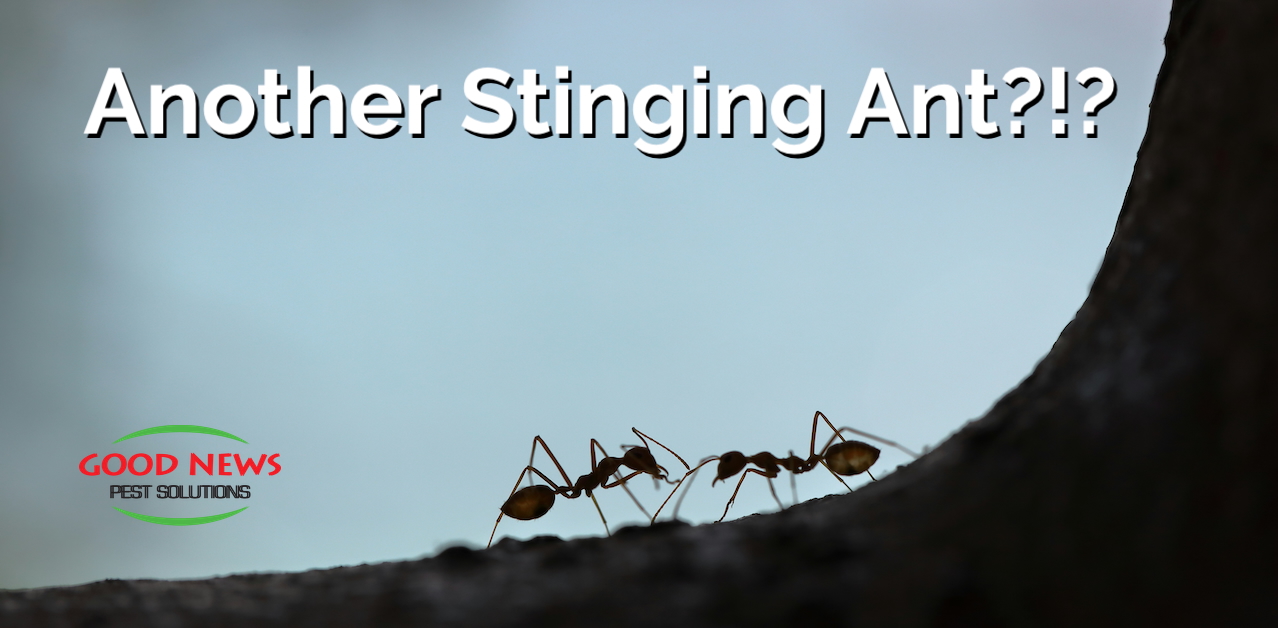
Another Stinging Ant?!?
As we wade into another hurricane season here on the Gulf Coast of Florida, normally we’d be talking to you about red imported fire ants and the dangers of stepping into a mound or having them invade your home during a tropical storm. Unfortunately, we have another invasive non-native species of biting ants to worry about – and they’re arguably worse.
Asian Needle Ants
Brachyponera chinensis, which translates roughly to "short, wicked ant from China," are native to East Asia, Japan and Korea. And they’re not as new to the United States as some might think. The first one spotted in America was in Georgia in 1932. However, they have been spreading more recently and raising concerns.
Asian needle ants don’t bite like fire ants, they sting. They are slightly smaller than your average ant, measuring about one quarter inch, and are experts at hiding. Thankfully, they are not aggressive and don’t swarm like fire ants.
The initial sting feels just like that, a sharp stabbing pain. After a few seconds, it goes away, then returns a few minutes later, hurting as if you’d been stung again. That cycle continues for a while – anywhere from a couple of hours to two days.
It can be annoying, but for most people is not life-threatening. However, for folks with allergies, especially with sensitivities to other insect stings like bees and wasps, it can cause anaphylaxis, a severe allergic reaction that can prove deadly if not treated quickly. And because these ants are so small, you might not even notice them until after you’re stung.
Invasive Species
But allergic reactions are not why scientists and park rangers are worried. The environmental impact of Asian needle ants is much more of a threat. Like most invasive species, Asian needle ants tend to displace native ants and disrupt the ecosystem.
Asian needle ants are carnivores and feed on flies, beetles, grasshoppers and termites. That’s not necessarily a bad thing, but when they’re eliminating other ants and their prey, they can significantly impact the natural process of seed spreading our bionetwork relies on.
East coast areas, especially those with hardwood forests, have widespread Asian needle ant populations. But they’ve started permeating more, everywhere from Florida to Washington state. They've been spotted in 20 states and are particularly troubling to folks in Texas. They also can withstand more extreme temperatures than many native American ants, meaning they’re out earlier and active deeper into the fall and even winter months up north.
What to Do?
Scientists say the best thing to do is avoid Asian needle ants once you spot them. They are dark brown or black, smaller than traditional ants, but larger than sugar ants. The end of their antennae and legs are a lighter orange-brown color. Be on the lookout especially in areas with rocks, logs or rotting wood, where the ants can nest.
Use gloves when gardening or working in your yard, but be warned, some entomologists believe Asian needle ants can sting through clothing. If you think you’ve seen Asian needle ants and are concerned, call a professional. Asian needle ants can be controlled by baits that are only available to pest control specialists, and, even then, those baits can harm indigenous ants if not applied correctly.
Our expert technicians at Good News Pest Solutions are experts at dealing with ants of all kinds. Most that we see in your home can quite capably be handled with our Go Green Perimeter Plus treatment along with spiders, silverfish and roaches. But we also handle persistent ants when necessary. For more details, or to speak with one of our highly trained field technicians, please give us a call!
Proudly Serving
Sun City Center, Ruskin, Palmetto, Parrish, Ellenton, Bradenton, Anna Maria, Holmes Beach, Bradenton Beach, Longboat Key, Lakewood Ranch, University Park, Myakka City, Sarasota, Siesta Key, Osprey, Nokomis, Casey Key, Venice, Englewood, North Port, Port Charlotte, Punta Gorda, Arcadia
Things You Can Do
Pay Your Bill Online
Leave Us a Review
Request a Free* Termite Inspection
Stop Mosquito Bites
Get Rid of Rodents
Get a Termite Damage Warranty
Get Pest Control for Your Attic
Get Pest Control for Your Business Request Prayer
Corporate Address
1080 Enterprise Court, Ste A
North Venice, FL 34275
Call Now: (941) 412-9610
Text: (941) 412-9610
Fax: (941) 412-0080
